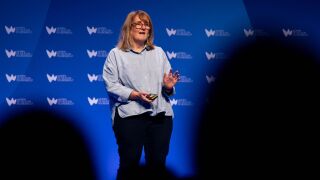"Our ambition is that this project touches the life of everyone in our country, or every mother in her house, or every employee in his work, or every investor in his project, or every child in his school, and doctor in his clinic,” said His Highness Sheikh Mohammed bin Rashid Al Maktoum, VP and prime minister of the UAE in March 2014 as he unveiled to the world his vision to transform Dubai into a Smart City.
Under the strategy, 1000 government services are aiming to go smart in the next three years, encompassing everything from transport through to electricity. The announcement highlights the growing on Smart City concepts by Gulf countries, where the relative youth of urban infrastructure is presenting governments with the ability to fast-track ICT projects.
There are clear economic, social and environmental benefits to pursuing Smart City concepts, where technology has the potential to develop and reform institutions and systems.
In the Middle East, Dubai and Abu Dhabi have taken active leadership roles with the Smart City concepts, but others such as Doha in Qatar as well as Riyadh and Jeddah in Saudi Arabia are also pushing ahead.
“What we have seen so far is only the early stages of deployments. Operators such as Mobily and Etisalat have been heavily involved in the roll-out of fibre in Saudi Arabia and the UAE respectively,” says Karim Yaici, lead analyst of Middle East and Africa at Analysys Mason. “The underlying infrastructure for high-speed networks is there.”
The UAE boasts the highest FTTH penetration in the world, according to research by the FTTH council. The country’s two operators – du and Etisalat – have invested significantly in the technology, which they have also been able to roll-out as part of new housing and real estate projects, where FTTH is a standard requirement.
This sophisticated communications layer offers valuable foundations to develop a Smart City. But even with the capabilities in place, what is the next stage and how can it be implemented?
“At the moment everyone in the value chain is looking at Smart Cities as an opportunity for growth but there is no clear roadmap as to who will be doing what, and what the implications will be in terms of revenues,” Yaici says. “Clarity is needed from governments beyond using the word Smart City for an umbrella for a lot of things.”
Operators in the Gulf often have the advantage of sharing a close relationship with the governments. As the two main stakeholders of any Smart City project, this relationship could prove key moving forward. “Governments have got a big role to play in terms of providing the investments that are required,” says Yaici.
“The governments and telcos are working closely, but the issue is who will be doing the non-connectivity aspect.”

In 2014, for the first time Dubai, Muscat and Abu Dhabi entered Ericsson’s Networked Society City Index, which compares cities’ ICT maturity and their social, economic and environmental development (see graph).
According to the report, cities with a low ICT maturity tend to be improving their ICT maturity faster than high performing cities, enabling many cities to climb the league table.
An example in the Middle East is Cairo, where in spite of low ICT maturity levels and major social, economic and environmental challenges, there is significant progression in ICT infrastructure, affordability and usage.
There is opportunity, says the report, for many cities across the world to leapfrog others by avoiding expensive and increasingly obsolete physical infrastructure and instead moving straight into innovative applications using advanced mobile technology.
According to Andrea Petti, regional VP of industry and society for Ericsson Middle East, ubiquitous connectivity and a clear vision are essential to delivering a successful Smart City that enhances the life of the people in it. He believes Dubai has both.
“Dubai has the glue that enables a city to become smart,” he says. ”There is also a clear push towards smarter infrastructure, and this is what has made the difference with Dubai and its leap up the table. The city has infrastructure and the Greenfield possibility to deploy things.”
Petti identifies transportation, utilities and safety as three key starting points for a Smart City. Dubai has already made notable progress in each. UAE residents, for example, can use a smart card to access services, such as eGate – which allows them to pass through immigration at UAE airports using biometric authentication – as well as make online payments for traffic fines, utility bills or Zakats (payments made annually under Islamic law).
Smart City enablers
Ericsson has been working with operators in the Middle East to help provide delivery service platforms, which aim to bridge the divide between operators and application developers. “Delivery service platforms allow operators to attract application developers and expose what they do to customers,” he says.
“We have been successful in the UAE and Saudi in bringing together infrastructure and services.”
While mobility is initially key, the next stage is using analytics to enhance the customer experience. “The operators are sitting on a very valuable asset with mobile data. With the right analytics on top, they can really make a difference to a customer’s everyday life,” says Petti.
As always, the main challenge facing operators in the Middle East and indeed world over is how to effectively monetise the opportunities presented by Smart Cities. Yaici says that developing close partnerships with M2M and software providers is key for operators to extend their service offering and provide end-to-end solutions.
“The next stop will then be how to monetise these new services from the end user, and how to increase the return of investment on infrastructure,” Petti adds that in order to truly take advantage of Smart City opportunities, operators must also prioritise their strategies at a senior management level.
“It requires extra effort and management,” he says. “If operators want to capture the opportunity from these initiatives, they have to dedicate their resources accordingly.”





